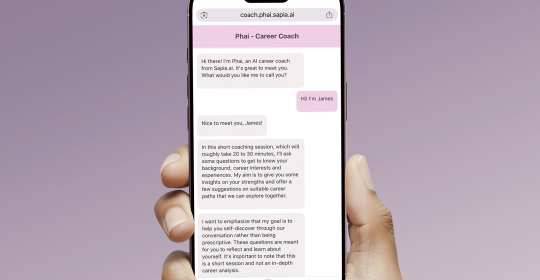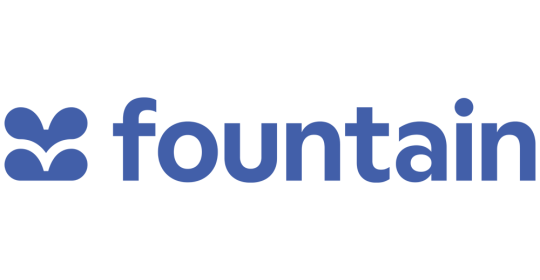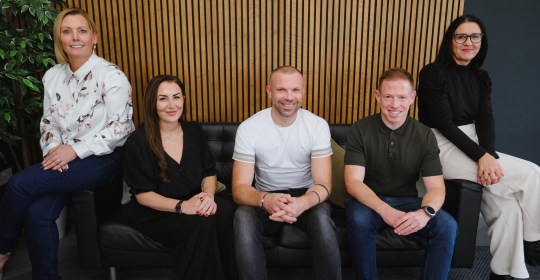The CIPD Trust has today published new guidance to support organisations and HR professionals to hire refugees. A guide for people professionals on hiring refugees provides practical recommendations for recruiting and retaining refugees, outlines relevant legislation, and highlights organisations who have successfully supported refugees into employment.
There are over 480,000 refugees in the UK*, who have a broad range of experience and skills. Research shows a third (33%) have a bachelor’s degree or equivalent, while a quarter (26%) have a master’s degree or equivalent**. Refugees also often possess important skills such as adaptability, resilience and cross-cultural understanding. These skills can enrich teams, provide new insights and drive innovation.
The new guide outlines the business benefits of hiring refugees, including addressing skills shortages and gaps in the labour market, creating diverse workforces, and contributing to social responsibility.
Sally Eley, Head of Trust at the CIPD, the professional body for HR and people development, said:
“Following the success of our guide to recruiting, employing and retaining people with convictions, we're very pleased to launch our second guide which is focused on supporting refugees into employment. This builds upon the work and findings of the CIPD Trust, to provide accessible and actionable advice for organisations of all sizes, who are looking to broaden their talent pool.
“At the CIPD Trust, we’re passionate about supporting those facing the biggest barriers into work. Refugees often need to completely rebuild their lives here in the UK, after fleeing their homes to escape conflict, climate catastrophe or persecution. Employment is one of the most important factors in their integration, and organisations can create meaningful change by helping them to start their lives again.”
Supporting refugees demonstrates a clear commitment to creating inclusive workplaces, as well as having societal and individual benefits. These include helping refugees to secure stable, long-term employment, participate in new communities and contribute to the economy.
Jen Stobart, Director of Tent UK, a network of over 70 companies committed to connecting refugees to work across the country, said:
“Hiring refugees is a win-win-win. For refugees, securing meaningful work is a vital step in rebuilding their lives and integrating into their new communities. For businesses, it means accessing a resilient and dedicated talent pool that brings fresh perspectives, a strong work ethic, and higher retention rates. For our country, hiring refugees means a stronger economy and a solution to labour shortages.
“Yet, as they seek to secure meaningful employment, refugees face many structural barriers that business can help tackle. HR professionals play a fundamental role in successfully recruiting and onboarding refugee talent.”
In 2017, Starbucks established a refugee hiring programme in partnership with the Refugee Council UK, which formed part of their global commitment to hire refugees.
Russell Butcher, Director of Strategic Programmes and Partner Resources at Starbucks EMEA said:
“Refugees bring many of the winning attributes and skills we look for. However, it goes beyond what refugees bring to Starbucks, as we look to create new paths for them to thrive. In the UK we’re working in collaboration with the Refugee Council UK. We’ve built a programme that delivers training to help refugees rebuild their lives through employment, which over 400 refugees have joined.”
A guide for people professionals on hiring refugees provides recommendations for people professionals when recruiting, inducting and retaining refugees, including:
- Considering the language in your job advertisements, using straightforward terms and avoiding jargon.
- Reflecting on your application process and whether its accessible, especially to someone who doesn’t speak English as their first language.
- Training hiring managers in relation to some of the barriers and challenges that refugees may experience when applying for jobs.
- Assigning a buddy or mentor who can help the new employee make connections with colleagues and answer day-to-day questions.
- Identifying any training needs that address differences between countries, for example legislation around health and safety or data protection.
- Adapting or adjusting standard expectations during probation or initial periods of employment and providing plenty of feedback and regular support.
While the guide provides broad advice, it recognises there are many differences between refugees and their experiences, and this may need to be tailored to particular needs. It may also need to be supplemented with advice taken from appropriate groups and the guide signposts to further guidance and organisations.







